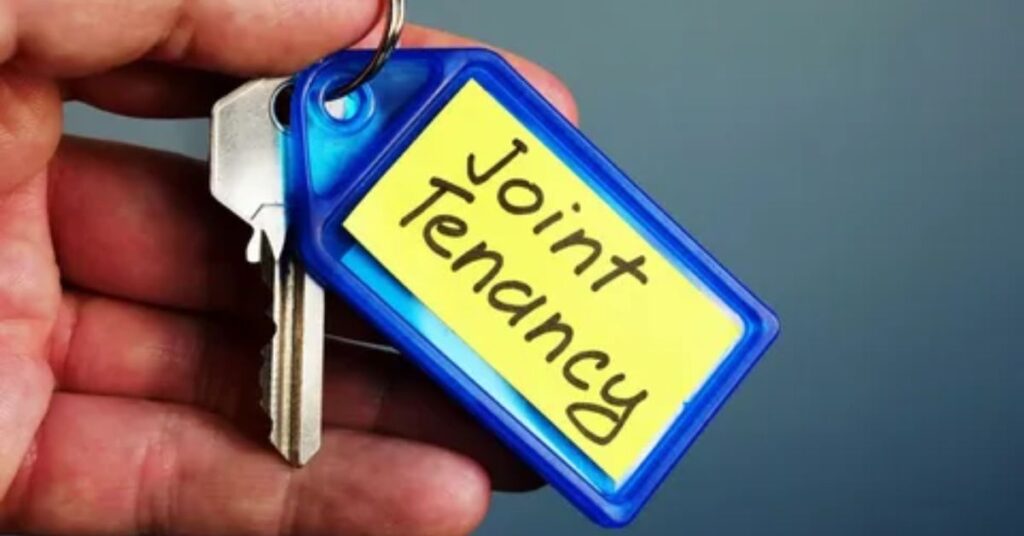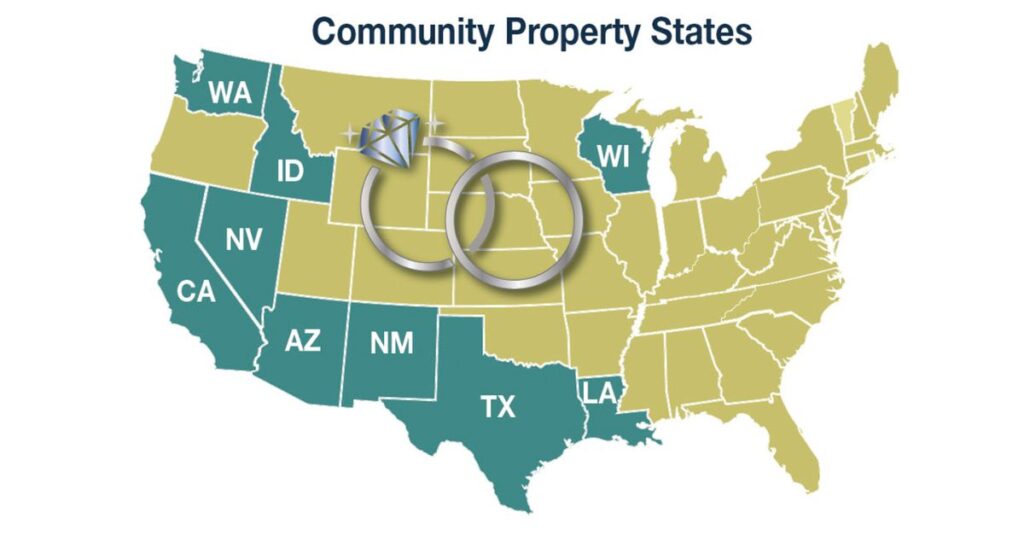Owning 50 percent of a property means you share equal ownership with another party. You have the right to use and enjoy the property just like the other owner. Both of you need to agree on major decisions, like selling the property or making significant changes.
You also have a responsibility to maintain the property and share costs for repairs and taxes. If you and the other owner disagree, you might need to find a way to resolve the conflict, such as mediation. Understanding your rights helps ensure you can protect your investment and enjoy your shared property.
Types of property co-ownership
There are three main types of property co-ownership. In joint tenancy, all owners share equal ownership and rights to the property. If one owner dies, their share automatically passes to the surviving owners.
In tenancy in common, each owner has a specific share of the property, which can be different sizes. Owners can sell or will their shares independently. Community property is for married couples in certain states, where both spouses own the property equally. This type of ownership requires both spouses to agree on major decisions.
Joint tenancy
Joint tenancy means all owners share equal ownership of a property. Each owner has the same rights to use and enjoy the property. If one owner passes away, their share automatically goes to the surviving owners.

This type of co-ownership is common among family members or close friends. It simplifies the process if one owner dies, avoiding the need for probate. Joint tenancy can be a great way to share property ownership with trusted individuals.
Tenancy in common
Tenancy in common allows multiple people to own a property together. Each owner has a specific share, which can be different sizes. You can sell or pass on your share without needing the others’ permission.
This type of ownership is flexible and allows for easy transfer of shares. If an owner passes away, their share goes to their heirs, not automatically to the other owners. It’s a great option for friends, relatives, or business partners who want to own property together.
Community Property
Community property is a type of ownership for married couples in certain states. In this arrangement, both spouses own the property equally, regardless of who paid for it. They share ownership and responsibilities equally.
Both spouses must agree on major decisions, like selling the property or making big changes. If they decide to divorce, the property is usually divided equally. Community property helps ensure that both partners have an equal stake in their shared assets.
Your property rights as a joint tenant
As a joint tenant, you share equal ownership of the property with other joint tenants. You have specific rights and responsibilities that come with this type of ownership.
- You have an equal right to use and enjoy the property.
- If one joint tenant dies, their share automatically passes to the surviving joint tenants.
- You must agree with other joint tenants on major decisions, like selling the property.
- You share responsibility for property maintenance and expenses.
- You can’t sell or transfer your share without the consent of the other joint tenants.
Joint tenancy ensures that all owners have an equal stake and say in the property. It also provides a straightforward way to handle ownership if one of the tenants passes away.
Your property rights as a tenant in common
As a tenant in common, you have specific property rights. This type of ownership allows multiple people to own a property together. Each person owns a distinct share, which can be unequal.
- You can sell or transfer your share independently.
- Your share can be passed to heirs in your will.
- You have the right to use and enjoy the property.
- You are responsible for your share of property expenses.
- You must agree with other owners on major decisions about the property.
- You can request a partition if you want to divide the property.
Understanding these rights helps ensure you can manage your share effectively and protect your interests in the property.
Your property rights as a Community Property

In community property, your property rights are distinct and shared equally with your spouse in certain states. This type of ownership applies to assets acquired during marriage and involves joint decision-making.
- Equal Ownership: Both spouses own the property equally, regardless of who paid for it.
- Shared Responsibilities: Major decisions require agreement from both spouses.
- Divorce Division: In case of divorce, property is usually divided equally.
- Management and Control: Both spouses have equal rights to manage and control the property.
Understanding these rights is crucial for managing joint assets and ensuring fair treatment of property during major life events like divorce or inheritance.
Your legal rights and responsibilities as a co-owner
As a co-owner of a property, whether in joint tenancy, tenancy in common, or community property, you have specific legal rights and responsibilities:
- Occupy the property
- Receive income generated
- Sell your share of the property
These rights and responsibilities helps maintain harmony and ensures that your interests are protected as a co-owner of the property.
1.Your right to occupy
You have the right to live in or use the property as agreed upon in the lease or ownership agreement. This means you can enjoy the space and make it your own during the agreed-upon time. It’s your sanctuary, where you can feel safe and comfortable. Whether it’s a cosy apartment or a spacious house, your right to occupy ensures that you have a place to call home.
Responsibilities and Exceptions
Your right to occupy comes with responsibilities and exceptions:
- Responsibilities: Your responsibility is to respect the agreed-upon terms and conditions of using the property. This includes keeping the space clean and well-maintained.
- Exceptions: there may be exceptions, such as if the property undergoes major renovations or repairs, which might temporarily limit your access.
2.Receiving generated income
You have the right to receive income generated from the property, such as rent payments if it’s rented out or profits from any business conducted on the premises. This income contributes to your financial well-being and can help cover expenses associated with the property.
Responsibilities and Exceptions
Responsibilities and exceptions of receiving generated income include:
- Responsibilities: You must report the income on your tax return and comply with any local regulations.
- Exceptions: There may be exceptions depending on the type of income and your specific circumstances, such as tax exemptions or deductions related to property expenses.
3.Selling your share of the property

You have the right to sell your share of the property to another party. This means you can transfer your ownership to someone else, who will then become a co-owner with the remaining owner(s). It’s important to notify the other co-owners and follow any legal procedures required for the sale to ensure a smooth transfer of ownership.
Also Read This Post: HOW LONG DO APARTMENT INSPECTIONS TAKE? REVEALED [2023]
Responsibilities and Exceptions
Responsibilities and exceptions of selling your share of the property include:
Responsibilities: You must inform the other co-owners of your intention to sell and comply with legal procedures for transferring ownership.
Exceptions: There may be exceptions depending on local laws and the terms of your co-ownership agreement, such as restrictions on who you can sell to or conditions that must be met before the sale can proceed.
Property and finance mediation
Property and finance mediation helps resolve disputes related to property ownership and financial matters. A mediator, a neutral third party, facilitates discussions between co-owners to find mutually acceptable solutions. They encourage open communication and guide the parties toward a fair agreement.
Mediation can address various issues, such as disagreements over property use etc. It allows co-owners to discuss their concerns and preferences in a structured and respectful manner. By working together through mediation, co-owners can often avoid the costs and complexities of going to court.
What happens if you separate or divorce?
Navigating property co-ownership during a separation or divorce is undoubtedly complicated and emotionally challenging. If you separate or divorce, what happens to property ownership depends on several factors:
- Selling your home
- Buying the other party out
- Postponing sale
- Sharing the house
It’s important to seek legal advice to understand your rights and options.
Selling your home
Selling your home involves preparing the property, setting a competitive price, and listing it for sale. Once you receive offers, negotiate terms with potential buyers and finalize the sale through paperwork and transfer of ownership. Working with a real estate agent can simplify the process and ensure a successful transaction.
Buying the other party out
Buying the other party out means purchasing their share of the property to become the sole owner. This typically involves agreeing on a fair price and completing the transfer of ownership through legal processes. It allows you to gain full control of the property and avoid co-ownership complications.
Postponing sale (or Mesher Order)
A Mesher Order, or postponing sale, delays the sale of a property until a specified event occurs, such as a child reaching a certain age. It allows one party to remain in the property while the other retains their financial interest until the sale. This order helps to protect the interests of both parties during a divorce or separation.
Sharing the house
Sharing a house involves living with others and sharing responsibilities like chores and bills. Communication is key to resolving conflicts and maintaining a harmonious living environment. It’s important to respect each other’s privacy and needs.
Also Read This Post: WHO OWNS THE UTILITY POLES ON MY PROPERTY ? REVEALED!
Speak to a finance and property mediator

Speaking to a finance and property mediator can help resolve disputes between co-owners. Mediators facilitate discussions and help parties find fair solutions. They guide the process to ensure both sides are heard and work towards reaching a mutual agreement.
Mediators can address various issues such as disagreements over property use, financial responsibilities, and ownership rights. They provide a neutral and structured environment where co-owners can discuss their concerns and preferences. By engaging in mediation, co-owners can often avoid the costs and stress of going to court.
Frequently Asked Questions
What is the difference between joint family property and separate property?
Joint family property refers to assets owned collectively by members of a family unit, typically inherited. In contrast, separate property refers to assets owned individually by a specific individual and not considered part of the collective family assets.
What rights do I have as a 50% owner of a property?
As a 50% owner, you have the right to use and enjoy the property equally with the other owner, and participate in major decisions regarding the property.
Can I sell my 50% share of the property?
Yes, you can sell your 50% share to another party, subject to any agreements or legal restrictions in place.
Do I have to share maintenance costs equally with the other owner?
Both owners are responsible for their share of maintenance costs, unless otherwise agreed upon or specified in a legal agreement.
What happens if the other owner wants to sell the property, but I don’t?
If you can’t reach an agreement, the other owner may be able to force a sale through legal means, such as a partition action, depending on local laws and regulations.
Final Thoughts
Owning 50% of a property means you share equal rights and responsibilities with the other owner. It’s important to communicate and cooperate to make decisions about the property and its upkeep. Understanding your rights helps protect your investment and ensure a harmonious co-ownership experience.

Paul Mitchell, our website’s author, leverages 6 years of business expertise to provide insightful content. His wealth of experience enriches our platform, offering valuable insights for our readers.











